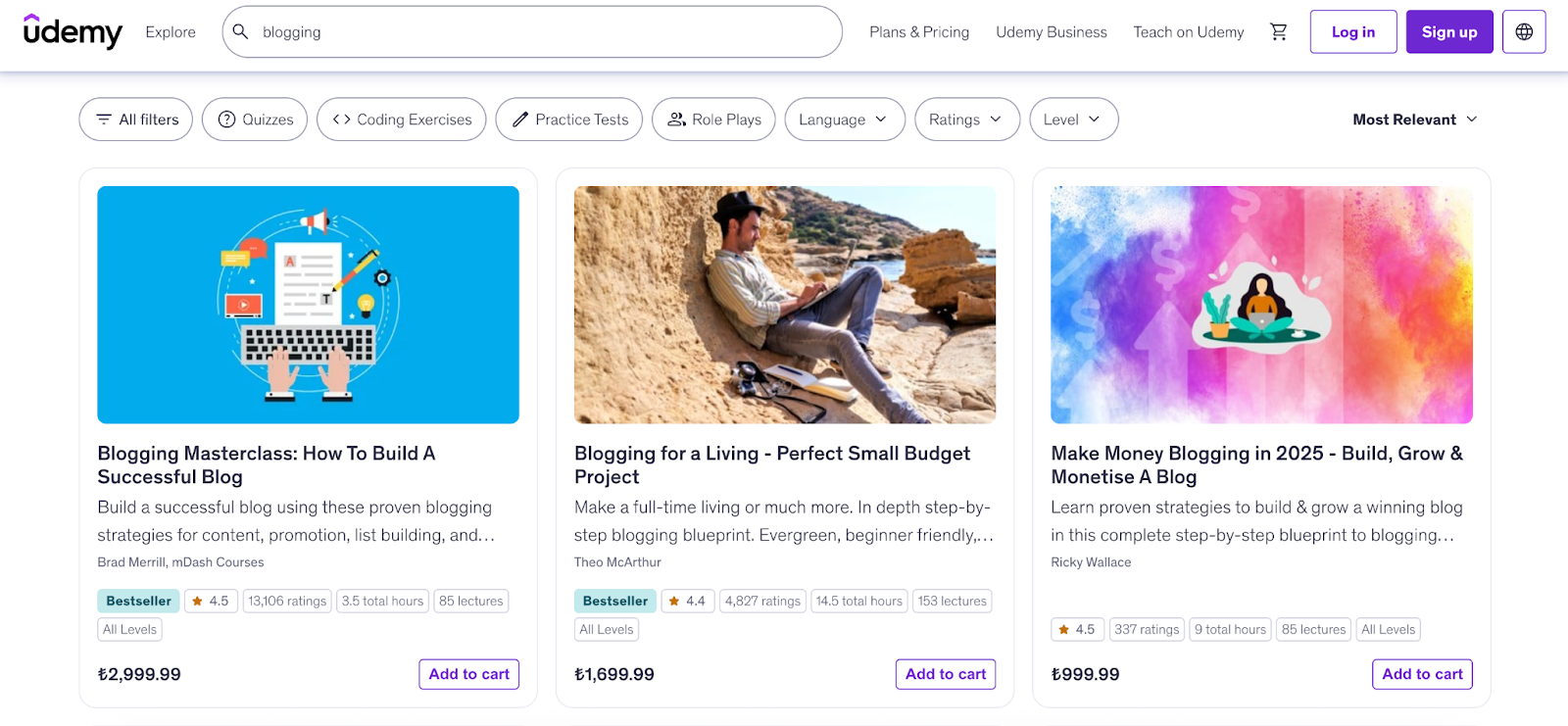Top 30 Self-Employment Ideas for Financial Freedom (That Actually Work)
Discover 30 self-employment ideas to build income, gain flexibility, and work toward true financial freedom.
October 20, 2025
October 20, 2025

Looking for self-employed business ideas that can help you earn money, gain control, and move toward financial freedom? Whether you’re dreaming of passive income, starting your own business, or just exploring new income streams, self-employment opens the door to flexible, creative ways to build a better future. In this guide, I’ll share practical self-employment ideas, tips for getting started, and expert advice to help you find the right path — whether you’re all in or just testing the waters.
What does financial freedom really mean?
Financial freedom is a term that means different things to different people. For some, it’s about replacing a 9-to-5 with flexible, self-employed work. For others, it’s having multiple income streams, so money isn’t a constant source of stress. Let’s check out this infographic from the US news channel CNBC:

Even if you’re not aiming to be on Level 7, financial freedom could mean being able to choose your clients, take time off when you need it, or work from anywhere.
Why more people are choosing self-employment
More people than ever are stepping away from traditional jobs to build something of their own. According to research by Upwork, 28% of skilled knowledge workers in the US now operate as freelancers or independent professionals, and this trend is bound to continue. Self-employment offers the kind of freedom that a salary often can’t — the freedom to choose your projects, your clients, and your schedule.
The self-employment principle that really helped me gain control over my time was putting processes into place. Even as a one-person operation, having written workflows and setting deadlines for myself (even arbitrary ones) saved me hours every week. It also helped me understand exactly how long projects take, which meant I could price accurately and control my schedule instead of constantly putting out fires.
For me, financial freedom means being able to say yes or no to projects based on whether they bring me joy and whether I vibe with the client - and not being dependent on doing it for the cash. Self-employment gives me that choice in a way a traditional job never could.
{{Lauren Plug}}
Turning spare time into a second income stream
If you’re working a 9-5 and feeling apprehensive about quitting to become a solopreneur, that’s understandable. You don’t need to go all in from day one. Many freelancers and business owners started small by offering their services in their spare time or on weekends. And it’s not uncommon: for example, according to research, 51% of Americans have side hustles.
The general idea here is to experiment until something clicks. Self-employment grows fastest when it’s built on what already works for you.
If someone wants to get started without quitting their job, I'd recommend starting to engage with your target audience on LinkedIn now. If you can't post publicly because of your full-time role, slide into DMs, comment thoughtfully on posts in your field, and build relationships. Meanwhile, create a simple website and start building portfolio pieces through volunteer work or passion projects.
{{Lauren Plug}}
Self-employment ideas to start your own business
Here are our top 30 ideas for self-employment to bring financial freedom.
1. Freelance writing
Freelance writing means creating content for clients like blogs, websites, or marketing materials. Businesses always need content, and you can work remotely. Start by creating a simple portfolio and pitching on freelance platforms or reaching out directly to small businesses. Interested in becoming a copywriter? Check out our guide on how much you should be charging your clients.
2. Virtual assistant
A virtual assistant handles tasks like scheduling, email management, and customer support from anywhere. It works because business owners need reliable help without the cost of a full-time hire. You can begin with a clear list of services and promote them on freelance marketplaces or in business networking groups. A virtual assistant is one of the top career choices for those who have little experience and want to work from home.
3. Social media management
Social media managers create and schedule posts, engage with followers, and track performance. Many businesses need an online presence, and they either don’t know how to plan a content strategy or just don’t have the time to do so themselves. You can get started by running accounts for a friend or local business, then use those results as a mini-portfolio to attract paying clients.
4. Blogging and content creation
Content creation covers everything from blogging to running a YouTube channel or podcast. The idea is simple: build an audience around a topic you care about, then monetize through ads, sponsorships, or affiliate marketing. It’s a saturated market and it takes time to grow, but it’s one of the most flexible self-employment paths out there. The good news is that you can start out for free by posting consistently, and then scale into a full-time business as your audience expands.
If you’re already a content creator, check out our guides on how to price your Instagram Reels and TikToks.
5. Online courses or eBooks
If you have a particular skill or knowledge, you could turn it into an online course or an eBook. Unlike many of the ideas on this list, this one entails passive income: you put in the work once to create your materials, and then sell them again and again, often with little extra effort. Platforms like Udemy, Teachable, or Amazon Kindle make it easy to publish and reach a global audience. You can also promote your course or eBook on social media platforms.
For example, if you’re a blogger, you could offer a course on blogging. This is what it would look like on Udemy.

6. Resume writing
Today’s job market is as competitive as it gets, and according to research, only 25% of applicants make it past the employer's hiring software. So, if you have strong writing skills or HR experience, you can start by offering resume makeovers on freelance sites or promoting your services in career-focused groups online. You can expect steady demand as people change jobs often, and a polished resume can make a real difference. Many clients will also pay extra for tailored cover letters or a LinkedIn profile overhaul, which can increase your earnings from each project.
7. Selling digital products
This is another idea for those looking for passive income. Digital products are items you create once and then sell over and over, without needing to worry about shipping. This includes things like templates, printables, stock photos, fonts, presets, or even music loops. Basically, anything that’s a small, useful asset that people can download instantly is covered by this category. I’ve personally purchased lots of PDF sewing patterns online, and the process was easy and convenient for both me and the seller. If you have design, writing, or creative skills, you can set up a shop on platforms like Etsy, Gumroad, or Creative Market
8. Personal training
If you’re a fitness enthusiast, this one’s for you. Personal training is quite a popular self-employment path for those who enjoy helping others reach their fitness goals. People are always trying to invest in health and wellness, so you can expect consistent demand. You can work from home (like offering Zoom classes online) or at a local gym or park.
If you’re certified or have strong fitness knowledge, you can start by offering one-on-one sessions or small group classes, then expand into online programs, or find your niche to specialise in, like strength training, weight loss, or yoga.
9. Life or career coaching
The move that worked: offering single coaching sessions before building a full program. I charged $200 for a 90-minute session focused on one specific problem — career clarity, boundary-setting, or getting unstuck. My first paying client came from answering a question in a tech leadership Slack channel about burnout, then ending my comment with "I do coaching around this if you want to dig deeper." No website, no fancy funnel—just solving a real problem in public and making it easy to say yes to one conversation.
{{Charles Blechman}}
Coaching is a flexible self-employment path: you guide people through challenges like career transitions, burnout, or boundary-setting, often drawing on your own experience. Coaching doesn’t require formal credentials to begin, though training or certification can help build credibility. Many coaches start by offering sessions in areas they’ve personally mastered, then expand as demand grows. For example, many pursue certifications from bodies like the International Coaching Federation (ICF).
The overlooked opportunity: paid "thinking partner" sessions for people who aren't ready for full coaching. Tech leaders constantly face decisions where they just need someone outside their company to talk through options—no agenda, no therapy, just structured reflection. I charge $150 for these 60-minute sessions and they often convert to longer coaching relationships, but even if they don't, it's meaningful income that doesn't require someone to commit to a 3-month program.
{{Charles Blechman}}
10. Consulting
Consulting means offering professional advice to companies or entrepreneurs in areas where you already have experience. This often includes sectors like marketing, finance, HR, or operations, but it’s not limited to those. Businesses are often keen on paying for specialised knowledge to save time, cut costs, or grow quicker.
Many consultants start by taking on small projects for startups or local companies, then build a reputation that leads to bigger contracts or retainer work. A common path is transitioning from corporate roles, which allows consultants to turn their professional background into a service business that lets them work independently.

11. Photography or videography
Photography and videography are classic creative businesses with plenty of ways to earn, from portraits and weddings to concerts and product shoots for brands. If you’re a beginner with a good eye and a camera, start by shooting for friends, local events, or small businesses, then expand into higher-paying niches like weddings, real estate, or brand campaigns.
This path doesn’t mean you have to spend the day working in the field, either; there is a way to earn passive income here, too. You can upload your work to stock platforms like Shutterstock or Adobe Stock, and earn royalties each time someone licenses your photo or video.
12. Event planning
If you’re organised, calm under pressure, and secretly love a spreadsheet, event planning can be a surprisingly rewarding way to work for yourself. It’s one of those fields where word of mouth matters more than ads.
The work can range from small community events to full-scale corporate gatherings, and many planners eventually find a niche they love, like destination weddings or charity galas.

13. Cleaning services
Starting a cleaning business doesn’t require a huge investment, but it does take some setup, such as basic supplies, reliable transport, and attention to detail. The good news is that everyone needs cleaning services everywhere. People are always moving, renovating, or just too busy to clean. Many start with one-off jobs for friends or local landlords and grow into steady weekly clients or small business contracts once word spreads. Here’s a detailed guide on how to find clients for your cleaning business.
14. Tutoring (in-person or online)
Tutoring is one of the most straightforward self-employment ideas: no fancy equipment, no big investment, just the skills you already have. Whether it’s maths, languages, or test prep, families are willing to pay for quality one-on-one instruction outside the classroom. While advanced qualifications aren’t always necessary, having teaching experience or subject expertise can give you an edge and help build trust with new clients. Check out platforms like Wyzant or Preply to get started.
Academic tutoring let me test the business with zero startup cost while I was still teaching full-time. I picked up my first client through a parent at my school who needed summer math help for her son—charged $50/hour and met at their kitchen table twice a week. That summer, I made an extra $2,400, which covered a motorcycle trip I'd been putting off, and it proved people would pay for quality one-on-one instruction outside the classroom.
I see people sleep on short-term academic interventions—parents will pay $400-600 for a focused 4-week sprint before state tests or semester exams, and you're not locked into year-long contracts. I ran my first SAT prep intensive with three students from a Facebook parent group, made $1,500 in one month, and didn't have to leave my teaching job to do it.
{{Peter Panopoulos}}
15. Editing and proofreading
Writers, students, and small businesses all need clean, polished text, and they’ll happily pay someone who can make their work sound professional. So, if you have a sharp eye for detail, strong language skills, and patience, you can start with short projects like articles or newsletters and build toward longer-form work such as reports or manuscripts.
Many editors and proofreaders take courses in copyediting, grammar, or style guides (e.g., Chicago Manual, AP, MLA) to level up their skills.
16. Interior decorating
Interior decorating isn’t the same as interior design: for the former, you don’t need a degree or computer-aided design software to help people make their spaces feel better. Interior decorating focuses on colours, textures, and furniture placement. Basically, it focuses on mood and flow rather than structural design. Many decorators start by creating moodboards, sourcing pieces online, or offering virtual “room refresh” consultations through video calls. As you grow, you can learn design software or collaborate with contractors for larger projects, but strong taste and a good eye go a long way at the start.
17. Selling crafts
If you enjoy working with your hands and the creative process, you could turn this into a small business. It could be anything — think ceramics, drawings, homemade jewellery, or embroidery. A close friend of mine had a candle-making business, which fulfilled her both creatively and financially: handmade products often sell well because people crave things with a human touch.
You can start by sharing your work on social media or selling through online marketplaces such as Etsy and local fairs. Over time, packaging, storytelling, and consistent quality matter as much as the craft itself.
18. Pet sitting or dog walking
Pet care is one of the simplest service-based businesses to start. People need trustworthy help when they’re busy or away, and they’re willing to pay well for peace of mind. It’s flexible, usually local, and can turn into steady, recurring income if you build a client base. Unlike some business ideas, there’s no formal training needed, just reliability, a love of animals, and good communication. Many dog walkers and sitters start with neighbors or friends before moving on to apps like Rover or Wag. Check out our guide to setting the right rates as a dog walker here.
19. Childcare
It’s likely you already have some work experience in this field: many teenagers babysit neighbours’ kids for a bit of extra cash. If you’re reliable, good with children, and have basic first aid knowledge, this can become a steady source of income for you as an adult, too — parents are always looking for trustworthy help, whether it’s full-time nannying, part-time babysitting, or after-school care. Many childcare providers build long-term relationships with families or expand into small home-based daycares once they gain experience. Depending on where you live, you might need background checks or local certifications.
20. Personal shopping
If you’re into fashion and style and love finding the perfect item for someone, personal shopping could be the right choice for you. You don’t need any extra knowledge, either. From wardrobe updates to gift sourcing, clients hire shoppers to save time and avoid decision fatigue. Many start by helping friends refresh their style or shop for special events, then move into paid consultations or remote styling. You can also earn commissions through affiliate links or partnerships with brands.
21. Personal chef or meal planning
Personal chefs work with clients who want healthy, home-cooked meals but don’t have the time or skills to make them. So if you know your way around the kitchen and enjoy cooking, meal prep can become more than a hobby. Start small: offer weekly meal prep, dinner parties, or custom menus for busy families or fitness clients. Over time, many chefs also pivot to subscription-based meal plans or virtual cooking classes for recurring income.
Certifications in food safety and nutrition help build trust but aren’t a prerequisite.
22. Web development
Web development is consistently ranked as one of the top freelance skills. Everyone needs apps or websites, and the demand ranges from simple landing pages to startups building complex platforms. The field has also opened up thanks to codeless tools like Webflow, Wix, and Squarespace, which let non-developers create polished websites. For beginners, building a few sample sites is often enough to start attracting clients. Many freelancers land their first projects through platforms like Upwork or Fiverr, or by reaching out directly to local businesses that need a stronger online presence.
23. Project management
Project management isn’t really something people jump into without any prior experience. However, if your current role involves coordination, organization, or team oversight, project management can become a natural self-employment path. For many businesses, having a full-time project manager doesn’t make sense financially, so they hire contractors to handle short-term launches, marketing campaigns, or product updates.
If you’ve built experience in operations, communications, or management, you can start offering your services on a contract basis. It can be done remotely, too, using tools like Trello or Notion to track progress and communicate with teams.
24. Bookkeeping
If you’re detail-oriented, good with numbers, and already have some background in finance or bookkeeping, you could consider offering accounting services as a self-employment option. Similar to project management, many businesses cannot afford to have a full-time accountant, but still need help tracking expenses, reconciling accounts, or preparing tax documents. Another pathway is helping individuals and solopreneurs with filing when tax season comes.
With cloud-based accounting tools like QuickBooks or Zoho Books, you can manage multiple clients remotely and keep flexible hours. Having a CPA licence or QuickBooks certification can help you stand out.
25. Graphic design
Graphic design is another good self-employment option for creatives. And it’s not just designing logos: the demand for good graphic design is always high, from packaging and websites to pitch decks and social media posts. You don’t need a degree to get started; a strong portfolio and familiarity with tools like Adobe Illustrator, Canva, or Figma matter more. Check out our guide on how to land clients as a graphic designer here.
26. SEO consulting
Do you ever wonder how different pages end up on top of Google’s search results? That’s search engine optimisation for you. Behind every top-ranked website, there’s an SEO consultant who knows how to make Google happy. Some consultants focus on content and keywords, others on technical fixes that improve site performance. It’s one of the most in-demand remote services, and even a few well-paying clients can turn it into a full-time business.
Lauren Plug is an SEO consultant and a solopreneur. She spent six months building her client base while working a traditional 9-to-5 job.
I landed my first clients through cold emailing, and while it's hit or miss, I highly recommend this, especially if you're starting in a new industry. The key to this is highly customized emails and having a portfolio/website to send people back to. I also highly recommend people start with your LinkedIn network. I built a simple portfolio by volunteering for a few projects first, which gave me something concrete to show.
{{Lauren Plug}}
27. Translator
This one’s for our multilingual readers. Translation is a really essential service all over the world, and there are many paths you could pick depending on your personality. If you prefer focus and solitude, written translation might suit you best. If you like to think on your feet and communicate under pressure, interpreting could be a better match. Some fields, like legal or medical translation, require certification, but for most general or creative work, a strong command of both languages and a good grasp of context matter most.
28. Dropshipping
First of all, what’s dropshipping? It’s a business model where you sell products online without ever handling the inventory yourself. What you do instead is partner with suppliers who store, pack, and ship orders directly to your customers. You act as the middle point — managing the storefront, choosing what to sell, and setting the prices.
Dropshipping is one of the most accessible ways to start an online store. Your profit is the difference between the wholesale and retail price. It’s low-risk and beginner-friendly, but competition is high. Your success as a dropshipper depends on finding a niche and building a brand that feels trustworthy.
29. E-commerce store
Dropshipping is a good entry point into the world of e-commerce, but if you want to have more control over things like products, quality, and branding, you could build your very own store. Instead of relying on third-party suppliers, you handle inventory and fulfillment yourself, which means higher upfront effort but also better long-term margins. Many self-employed creators start small, selling handmade items, merch, or niche products through platforms like Shopify or Squarespace.
30. Airbnb or short-term rentals
If you have a spare room, guesthouse, or even an unused property, short-term rentals can be a steady source of extra income. Platforms like Airbnb make it easy to list your space, manage bookings, and handle payments. It’s a saturated field, and success goes beyond just posting pictures of your place. Cleanliness, quick communication, and small touches (like local tips or welcome snacks) help hosts stand out and earn repeat guests.
It’s not entirely a passive arrangement, but once your listing and routines are set up, it can feel close to one, especially with automated messaging and cleaning services. Just make sure to check local regulations first — some cities require registration or a rental license.
How to choose the right self-employment path
If you read the list above and feel totally overwhelmed, I get you. There are a lot of options to choose from. Here’s how you can make the right choice for you.
Match the idea to your skills and lifestyle
The best self-employment idea is the one that fits naturally into your life. Think about what you’re good at already. If you love talking to people, coaching or consulting might suit you. If you prefer quiet, focused work, translation or design could be a better match.
If you’re working a traditional job already, see if they offer any courses or qualifications that could help you build new skills. Many employers provide free access to training platforms or certifications that can later support your self-employment goals.
Passive or active? How much time do you want to spend?
Some paths, like dropshipping or digital products, can eventually bring in passive income. Others, like personal training or tutoring, depend on your active time and energy. Neither of them is better than the other; just think what would be a better fit for you. Many self-employed people mix both.
Start small, learn fast, pivot when needed

Every business — even a one-person one — changes over time. You don’t have to get it right straight away. Test ideas, notice what works, and adjust. A few clients, a small audience, or a single product is enough to start learning.
Two self-employment ideas I think deserve more love are specializing in serving values-driven or niche industries and thinking of yourself as an entrepreneur, not a freelancer. A lot of freelancers try to appeal to everyone, but some of the steadiest work comes from understanding a specific industry's pain points deeply.
Similarly, we can trap ourselves into charging less or not being taken as seriously because we 'freelance', but reframing your thoughts and how you talk about yourself to an entrepreneur/self-employed/solopreneur is a subtle change with major effects.
{{Lauren Plug}}
Final thoughts
Self-employment and financial freedom don’t mean chasing millions, but rather having choices. You don’t need to go viral or quit your job to start; you just need to take back a bit of control on your own terms.
FAQ
We are here to ease your working routine
Whether you're freelancing or a full-time contractor, we simplify the working process, putting you in control.
Try it free




Gig driving is one of the quickest ways to find job opportunities and make extra money. Check our complete guide for independent contractor drivers in 2026, with tips and best practices to help you earn more.

Colombia Digital Nomad Visa: learn how to apply, eligibility requirements, and best spots for remote work in one of the most biodiverse countries.

Discover the essential steps to become a copywriter, from understanding the role and choosing your career path to landing your first clients and scaling your rates. Learn which skills matter most, how to build a portfolio, and practical strategies to grow a sustainable copywriting career in 2026.


.JPG)